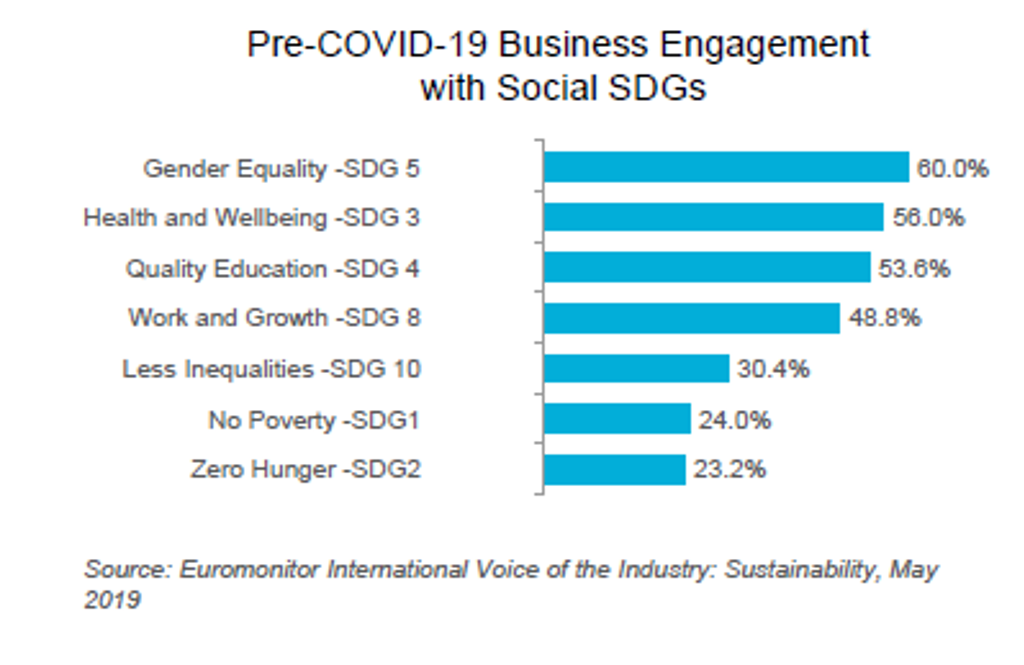Since the outbreak of COVID-19, businesses globally have been facing immense challenges, with the pandemic disrupting operations, supply chains, sales, revenues and employees on an unprecedented scale. By March 2020, 16.5% of companies had already downsized staff to reduce operational costs, according to findings from Euromonitor International’s Voice of the Industry: COVID-19 survey.
Nevertheless, many businesses have managed to pull through by putting people ahead of profits, creating partnerships, redesigning products and supporting communities. This is the rise of “purpose-driven” businesses focusing on social issues.
Prior to the outbreak, social risks, including health threats such as a pandemic were considered less likely to happen than a pressing environmental risk such as climate change. Our Voice of the Industry: Sustainability survey 2019 shows that before the outbreak, business engagement with social sustainability development goals were largely focused on issues such as gender equality and health and wellbeing.
Corporations have responded to the pandemic by taking actions aligned with their values to protect their stakeholders, deploying their logistics and operational capabilities as well as their philanthropic capacity.
In the US, the Google Wing drone has been used to deliver toilet paper, baby essentials and medicine to those in lockdown. In the UK, IKEA transformed a car park into a testing facility for NHS workers. In Brazil, Hyundai is giving free rides to transport healthcare professionals and the elderly. Walmart Mexico has launched “The essentials” price campaign, offering 25 essential items at their lowest possible prices. These are just some of the examples of worldwide business action in helping local citizens.
In terms of philanthropic response, Netflix has established a USD100 million fund for cast and crew on productions halted by the pandemic and Twitter’s Chief Executive Officer, Jack Dorsey, has pledged to donate a quarter of his fortune equivalent to USD1 billion to fund the global COVID-10 relief.
Companies in the most impacted industries such as luxury and apparel, have shifted manufacturing lines to produce essential medical equipment and PPE to alleviate supply shortages. Spanish group Inditex, which owns Zara, has switched production to manufacture hospital gowns. LVMH has pivoted its operations to manufacture hand sanitiser to be distributed to European hospitals for free and purchased ventilators to be delivered to French hospitals.
Business response will evolve over time from an initial survival mode, through a recovery phase towards a future where sustainability is synonymous with resilience. Although only 20% of companies who took part in our Voice of the Industry survey had a business contingency plan, many have reacted to it quickly, with creative interventions to deal with the short-term impacts of the virus, helping countries to close existing gaps when acquiring essential supplies.
As the world starts to reopen and adapt to the new reality, businesses will be shifting from reactive to more proactive responses to the crisis. Finding a balance between environmental, economic and social interests will be key for business recovery and post-lockdown survival.
Access the full report From Sustainability to Purpose in the Coronavirus Era for more insights on COVID-19’s impact on the economy, transition in business models and future outlook in the sustainability space.


